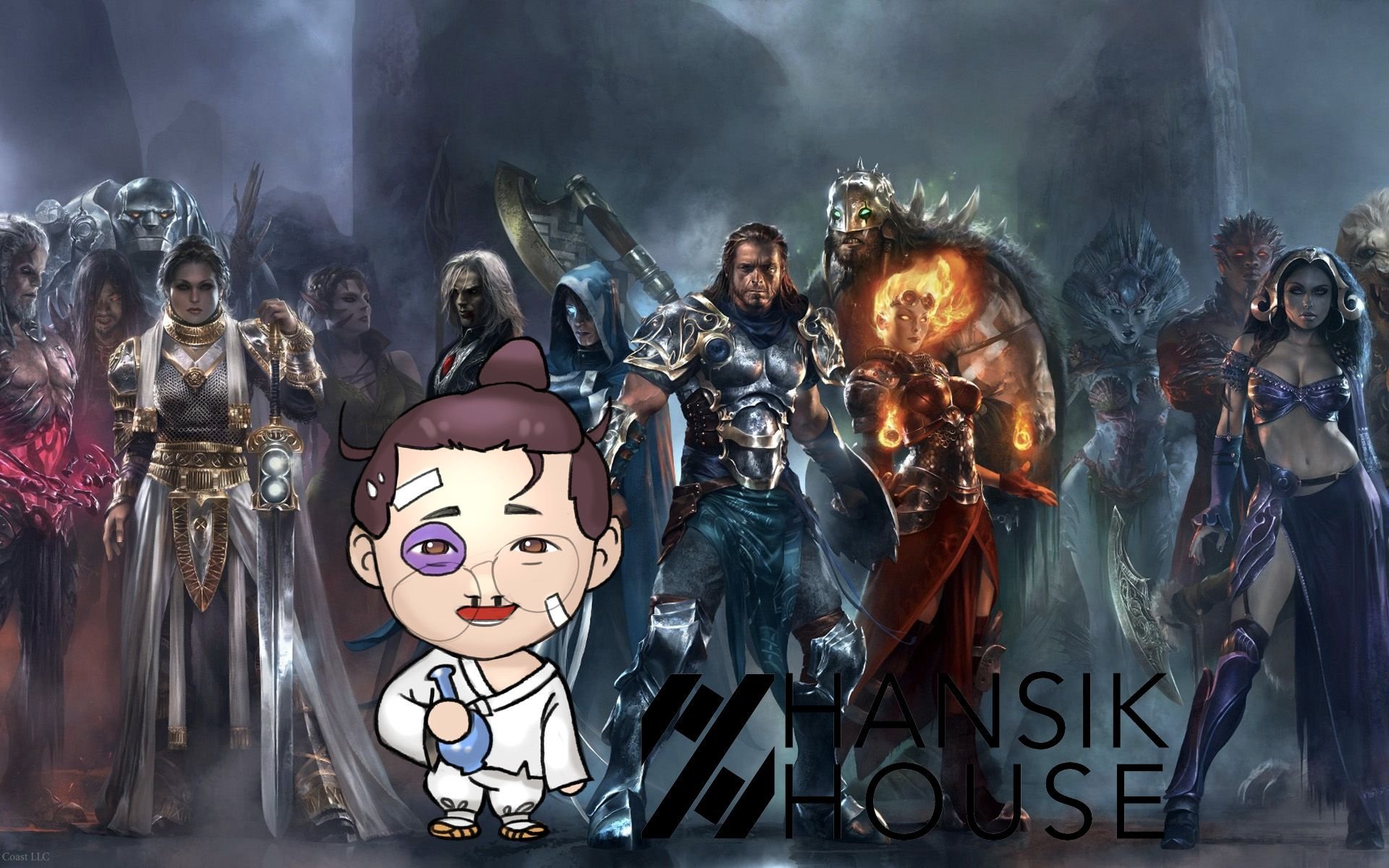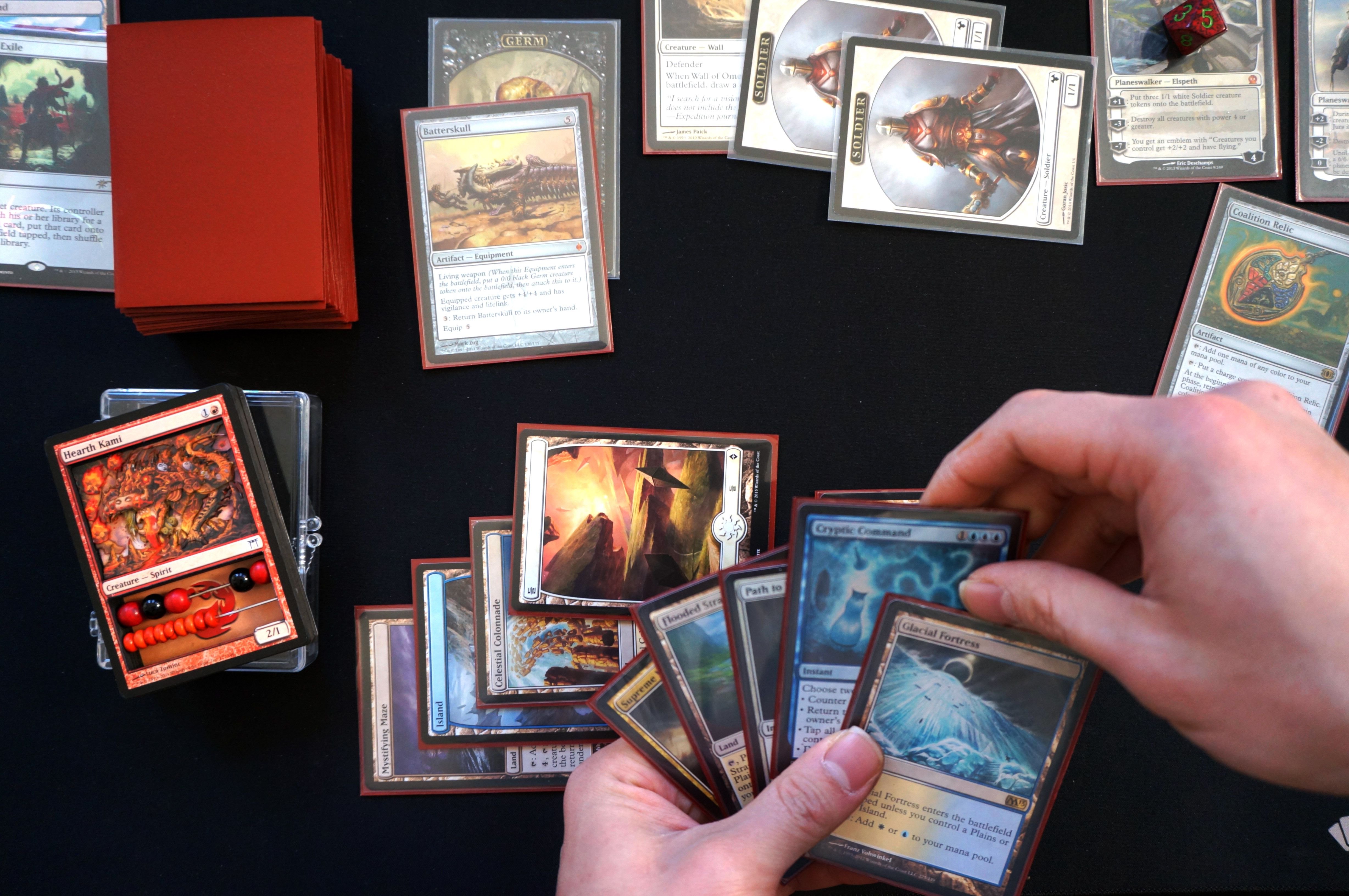
Life as a Gamer
It's been a while since I've written about Magic: The Gathering (MtG) ever since I started to compare the MtG card market to cryptocurrency assets but I had a unique experience last weekend that I thought would be an interesting to dig a bit into.
For people who don't want to get into the weeds of MtG jargon and particulars, scroll down to the last section about how I approach competitive gameplay.
This past weekend, I placed in the Top 8 for the first time at an official MtG Tournament! Hashtag shamelessgeekybrags. After playing the Modern format for a bit over a year, I managed to get to the semi-finals of an MtG Preliminary Pro Tour Qualifier (PPTQ). These are held throughout the year to test players. Winners are invited to compete in a Regional Pro Tour Qualifier (RPTQ) and placing highly in that tournament earns you a spot at the Pro Tour.
The PPTQ was mid-size, about 35 players, and I ended up losing only 1 game in the 6 rounds of swiss, drawing into Top 8 with 4-1-1 by intentionally drawing the last round with the top seed player. Competition at this level is fairly strict with two official judges patrolling the tournament, registered deck-lists, random checks, and competitive rule enforcement. On a personal level, it was great to see a wide range of players including a handful from my local shop in the Lower East Side.
Me at #3!
Defining Moments
So for most of the tournament I believe I played austerely and was proud of my only single game loss (to a poor matchup in Living End), but I want to focus this post on understanding what happened in the semi-finals. Writing this is in order to both share the experience of competitively gameplay as well as train myself to think along these lines more and more.
In the semi-finals, opponent is on what seems like a Storm deck and combos off to use Empty the Warrens, creating a dozen 1/1 goblins that I just can't get rid of. Onto game 2.
Throughout this game, I have a commanding position with plenty of discard and pressure on the board.
For magic aficionados here is the exact board state on his turn 2 - I have a Young Pyromancer down and in hand I have a Surgical Extraction, Sacred Foundry, and Bedlam Reveler (I'm on a Rakdos Reveler deck splashing for Lingering Souls). He has 5 cards in hand and no board, a few cantrips and Gifts Ungiven in the yard that I stripped away. At the end of his turn, I surgical his Gifts and see his hand of Deceiver Exarch, Pestermite, 2 Desperate Rituals, and a land. His deck is playing a mashup of Storm and Kiki-combo with 3 Kiki-jikis in the deck.
I then forget to play my 3rd land.
I wasn't terribly concerned as oftentimes in this deck wants to hold unneeded lands to pitch to Faithless Looting, which might have happened. But I didn't play out in my head all the options of what my opponent could have done.
I'm 100% punished when I untap and draw a land for turn. I show myself with the Sacred Foundry, play Reveler, draw three cards, and my hand is Inquisition of Kozilek, land, and Terminate.
It kills me right now to go over the scenario...
I play inquisition and he flashed in Exarch in response. I strip away the Pestermite, ignoring the 2 Rituals. I bash in and pass.
He untaps, topdecks a Kiki-jiki, and plays it for the win.
Now, I understand full well that I was punished for not carefully considering my turn and making a simple but back-breaking mistake. If I had played the 3rd land on time tapped, I would have had mana up to aim the terminate at Kiki-jiki, most likely ensuring a win. I didn't, and I lost.
That's the blatant technical misplay, one I have begun training myself not to do and more systematically/calmly approach game steps like the pros do. If you watch Grand Prixs or Pro Tour tournaments, pros are slow and methodical, even when it seems like there are no other options.
What they're doing is narrating their options.

Victory is a Story
Often in gaming or even sports activities, we treat moment-to-moment decisions as technical moves. If he swings for you face, you duck. If you she slashes from above, you parry. We very often associate prowess as a skill to act or react in a certain way depending on a scenario.
What's less spoken about is how competition is played out at higher levels like a story. Much of competition is skill in the moment, but a significant component is understanding the larger ark of a scenario will play out.
In my critical scenario of turn 2 of game 2, I was going on auto-pilot. In a rush, I was only considering how A, B, and C would change the immediate situation instead of fully comprehending how A, B, and C would help me arrive at Z. These are some of critical questions I could have asked myself considering that I was ahead in the current game state-
What are my opponent's outs (what cards can he draw, what sequences can her have / How can I lose from here?
How do I win most efficiently from here?
What are plays are more risky but have higher reward and what plays are more safe and flexible?
How many turns do I have of reliably winning or not losing with my plan of attack?
In the situation I was in, I failed to accurately calculate the first question for my opponent. This was especially pertinent since he was on a combo deck with 2 main avenues to victory. If I had been more deliberative with my plan and current situation, I would have known that definitely playing that land turn 3 would be the safest in ensuring the safest outcome. I would have path to victory on the board (to win reliably in 2-4 turns) and options for potential steps that my opponent could take.
In any case, my biggest take away was that I failed to string together narratives of either victory or defeat with my competitive play. I was simply relying on the strength of my cards drawn and options within the moment instead of understanding how certain actions could affect or secure a narrative ending.

Navigating the Field. Source: The AV Club
Victory (and defeat) is always a narrative. Sometimes they're very short stories that seem more bullet points than stories but they're a narrative of steps, challenges, and decisions that ultimately decide what happens in a match or competition.
Anyway, thanks for reading and sharing this interesting moment with me. Nonetheless, this was my first time Top 8-ing a competitive level tournament and I'm grateful to have made this much progress in a year. I'll continue to improve my game and hopefully report back with more major wins in the near future!
Steem on!

